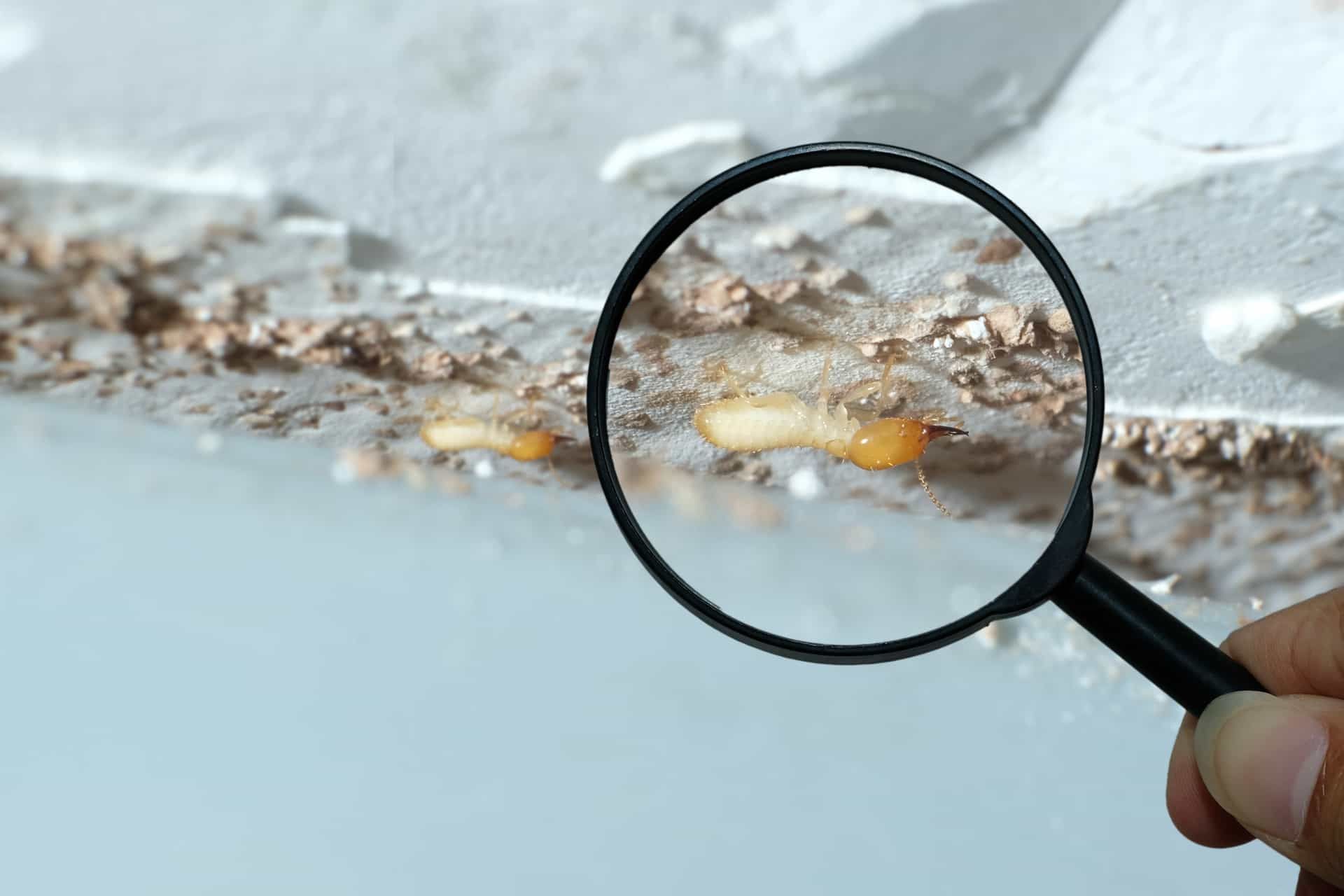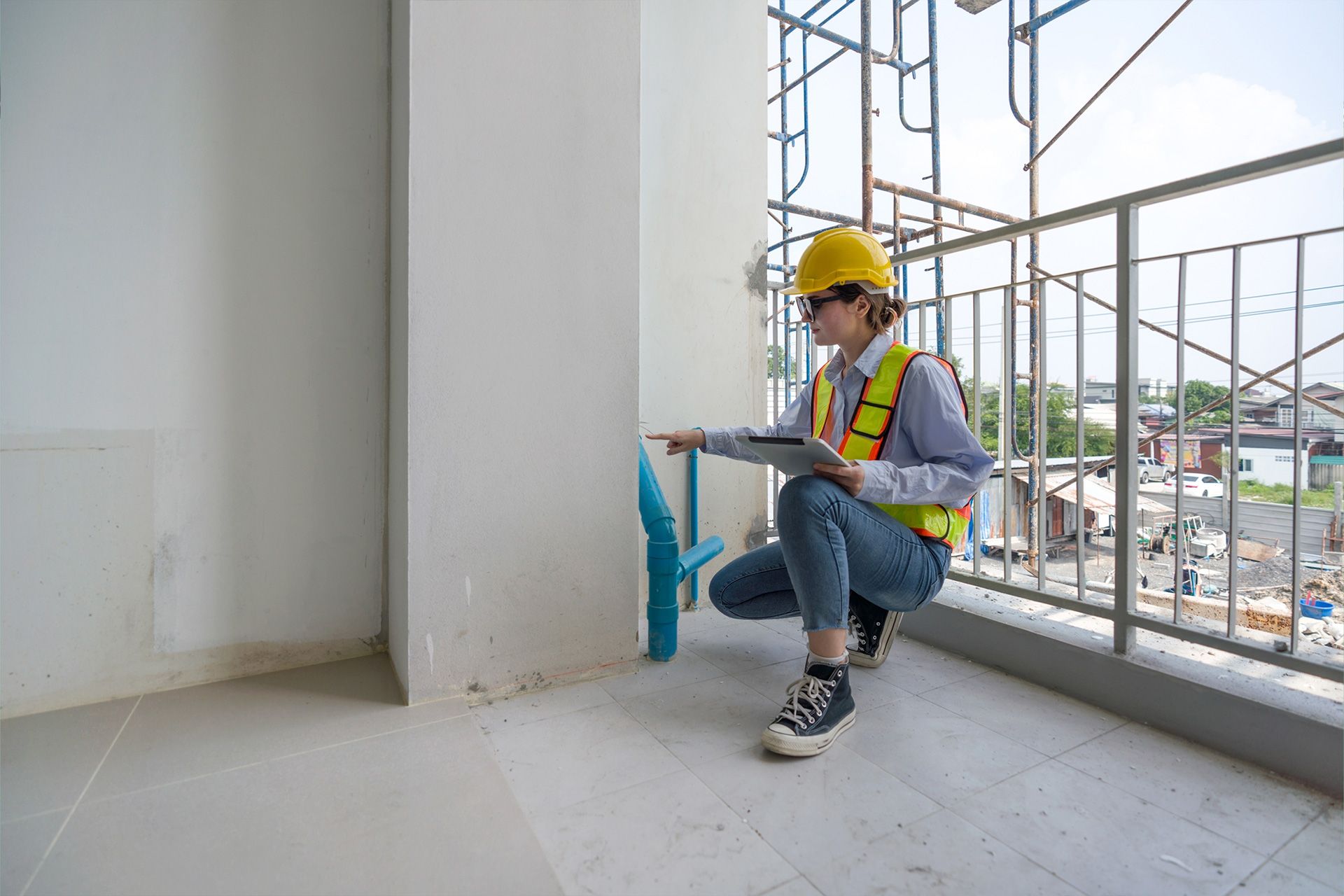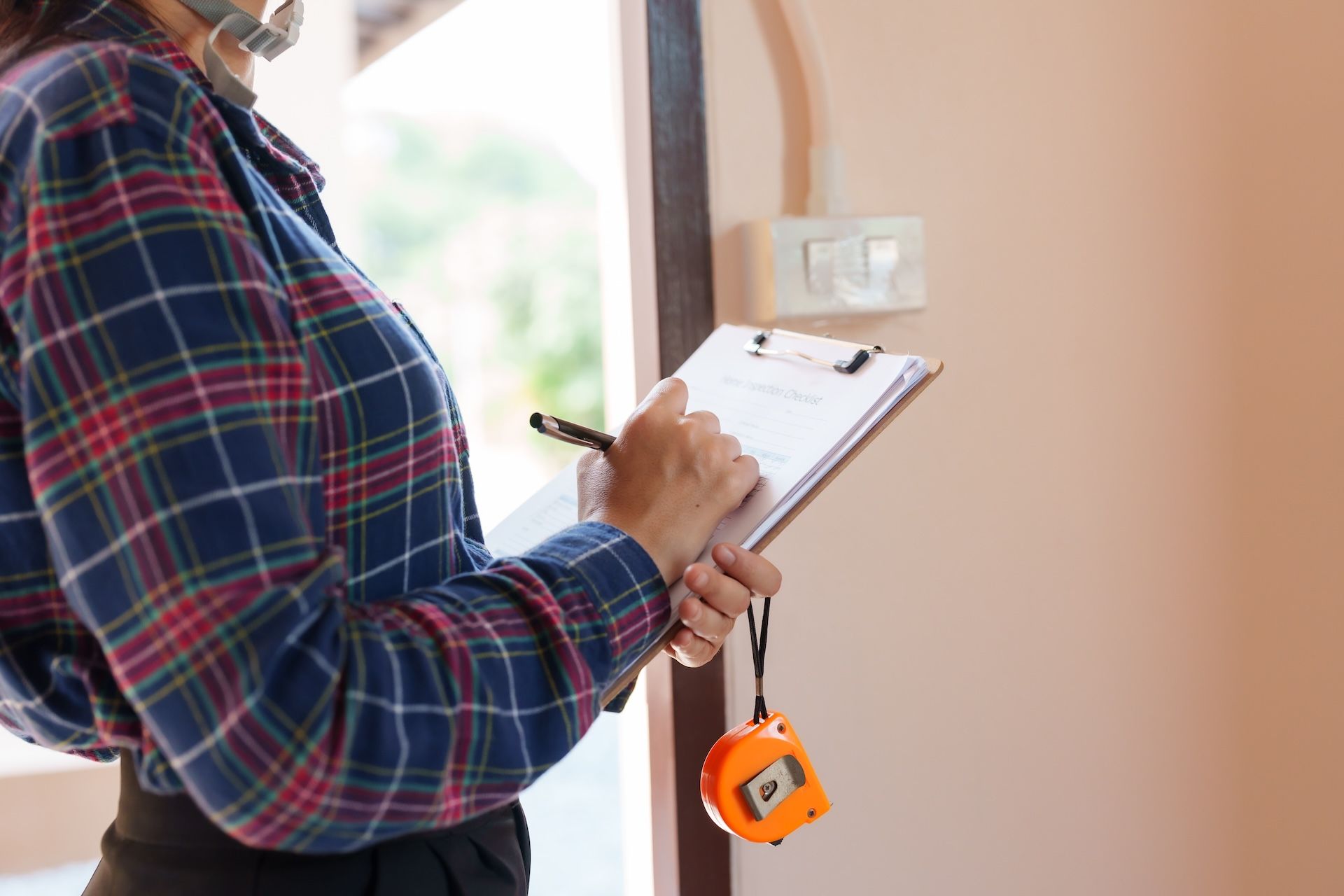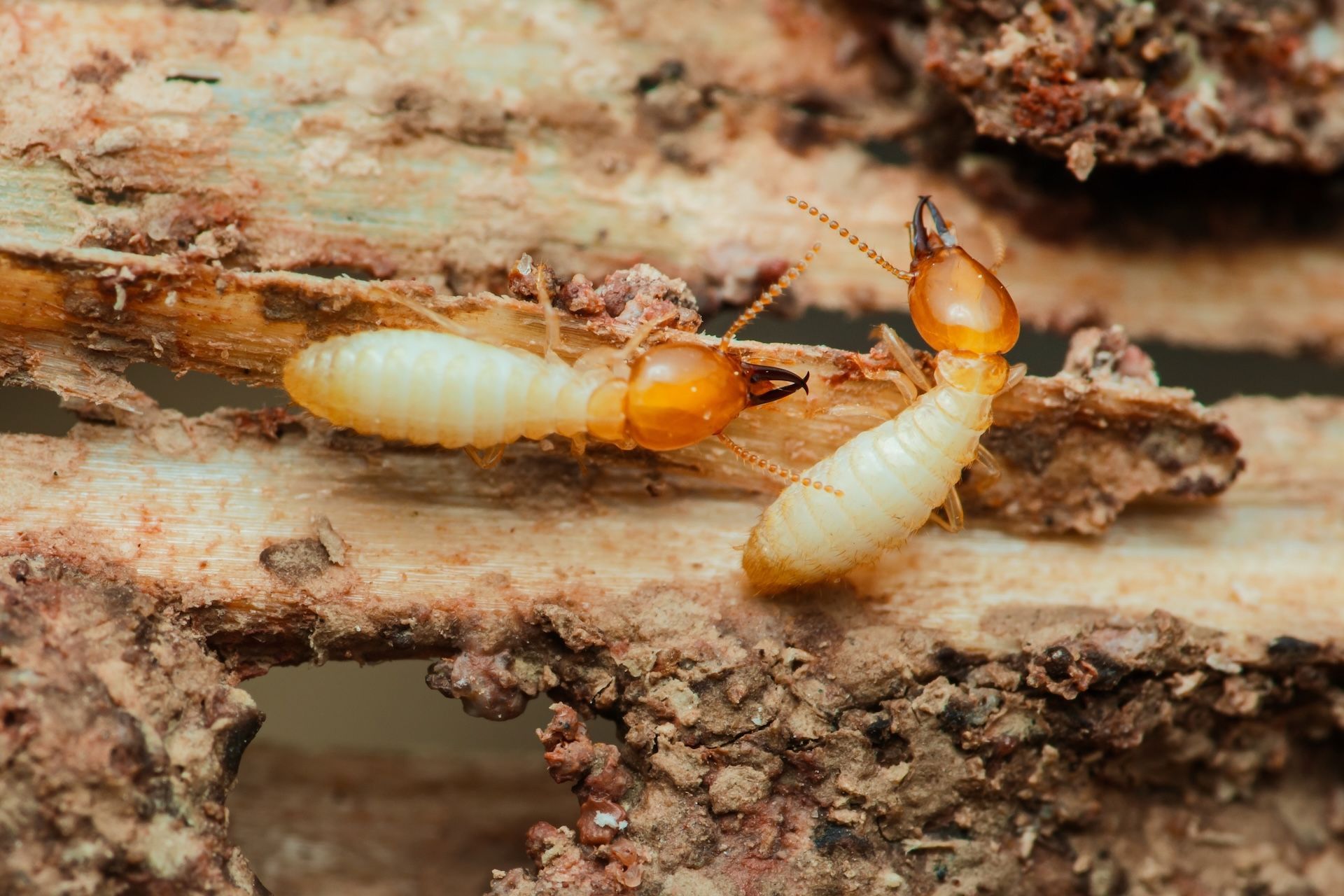Why You Should Get A New Construction Home Inspection
A new construction home inspection may seem redundant as it’s a new home so it will be defect-free by default. Right?
Not necessarily.
New construction home inspection such as a construction phase inspection is a valuable step in the process. It can ensure there are no code violations or problems that may rear their ugly head once you move in.
Let’s take a closer look at these checkups, what they include, and why it’s a wise idea to schedule them.
Why Even Inspect a New Building?
Most people wrongly assume that the inspection conducted by the builder of the home will suffice. After all, builders manage the construction site and are familiar with all the obligatory aspects of building a solid home.
That isn’t to say that nothing can fall through the proverbial cracks.
For instance, a contractor may have subcontracted one aspect of the construction to another company so it’s not uncommon for the subcontractors to make mistakes. Most builders also don’t inspect the construction often enough while it's being built. As a result, some mistakes may go unnoticed.
Plus, because there’s a mandatory inspection by county or city building inspectors, builders may rely on these inspections alone. Sadly, even county building inspectors make errors. These individuals are often overworked and operate on a tight schedule. What happens is that the inspector will quickly examine some areas before simply moving on to the next building they’re scheduled to inspect.
But what about the inspection that the builder promises you?
It’s not a replacement for a quality new construction home inspection. The builder evaluation is more like a walkthrough of the property focused on customizations or any enhancements - it doesn’t focus on the quality of the work.
Lastly, it’s worth mentioning building standards. Builders and county inspectors know which standards apply to a new home. This doesn’t necessarily mean that they are familiar with installation requirements for each of the components used in the construction.
One clear example is cement board sidings made by James Hardie that have very specific requirements. If the installation is not performed correctly, it may void the warranty.
Common Problems Found During a New Construction Home Inspection
Newly built homes can hide various issues, some of which include:
- Defective materials: construction materials such as cracked tiles, leaky windows, or defective doors are surprisingly common.
- Poor workmanship: construction workers can make mistakes. Frequent issues include the woodwork, bad painting, as well as poorly installed fixtures.
- Poor insulation: this oversight seems small but it could lead to major problems with cooling and overall energy efficiency of the home.
- Roofing problems: a roof may be new, but it can still have missing shingles, improper flashing, and even leaks.
- Electrical issues: poor wiring is very common and could lead to major problems later down the road.
- Plumbing issues: badly installed plumbing fixtures could lead to clogs, leaks, or low water pressure.
- Structural problems: a new home may have severe structural issues with the foundation, cracked walls, or even defective roof transitions.
Example of New Construction Home Inspection Services
A new construction home inspection typically consists of separate inspections (or phases) you can schedule during different stages of construction. Here are the key services we at Guardian Angel Inspections offer:
1. Phase I inspection
This inspection happens fairly early in the building process and concerns the excavation and grading, footing spacing, anchors, sizing, and slab layout. This includes components such as:
- Waste, drain, vent, and water supply lines
- Plumbing and gas pipes
- Soil excavation/trenches
- Grading, elevation, and drainage
- Concrete form layout and rebar
2. Phase II - pre-drywall/framing inspection
The second inspection is performed once the foundation, rough mechanical, plumbing, and electrical systems, and framing are completed. This is the most in-depth evaluation in the construction process and includes areas such as:
- Trusses
- Bearings, beams, and other smaller framing members
- Connection plates, anchors, clips, straps, nails, screws, etc.
- Stair structure, attachment, and stairwells
- Draft prevention and fire blocking
- Electrical panels, conductors, and outlets
- Waste lines and plumbing
- Ductwork and air distribution system
- Air and water intrusion resistance
- Doors and windows
- Roof framing, underlayment, sheathing, and flashing
3. Final inspection
Once the home is completed and utilities are connected but before the escrow and final walkthrough with a builder or the customer service representative, you should schedule a final inspection.
The inspector will review over 200 components and inspect all the main systems in the home.
This evaluation is the most important new construction home inspection as it’s your last opportunity to assess the newly constructed home before making the purchase.
4. 1-year warranty inspection
After the purchase and during the last month of the builder’s warranty period, you can schedule a 1-year warranty inspection. This evaluation identifies any components or systems that have prematurely deteriorated or have fallen into disrepair due to workmanship or manufacturing defects.
Scheduling this inspection helps you avoid taking financial responsibility for issues that were under your control by having the builder make repairs before your warranty expires.
Ensure you’re getting the home that you’re paying for
Even if you hire the best contractor in the area, it still doesn’t protect you from purchasing a defective home. Slip ups can occur, and it’s more common than you think for materials to be deficient or components to come with manufacturing flaws.
Taking all the preemptive steps helps eliminate any concerns about design flaws or structural integrity. That way, the builder can correct the problem beforehand, which can prevent surprises once you move in.
And the best thing is, it’s never too late to schedule an inspection. You may have missed the opportunity before making a purchase, but you can always have a 1-year warranty inspection and resolve any issues while your home is still under warranty.
Don’t know who to hire?
Guardian Angel Inspections is the safest choice.
Our inspectors are licensed to perform new construction inspections that comply with the majority of builder policies. We’ll be happy to assist you during each phase of the construction process, offering valuable advice and data that can help you make the best decisions for your home.
Use our
contact form or call
561-512-7854 to schedule a new construction home inspection.
Disclaimer: The information on this website and blog is for general informational purposes only and is not professional advice. We make no guarantees of accuracy or completeness. We disclaim all liability for errors, omissions, or reliance on this content. Always consult a qualified professional for specific guidance.
Share this entry







